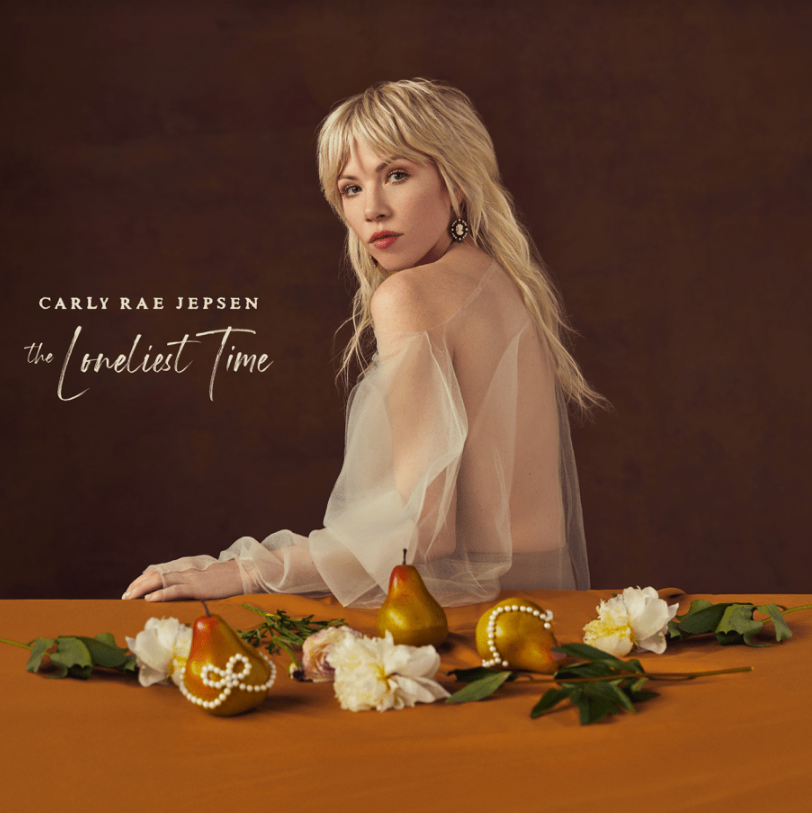“The Loneliest Time” Album Review
October 31, 2022
Carly Rae Jepsen may be best known for her early-2010’s shot into stardom, aided by her 2012 teen-favorite album Kiss. But in the decade since, Jepsen has somewhat quietly broadened her audience and grown into her own style of music; a far cry from the bass-heavy, unoriginally produced work that made her a household name.
The latest album in her catalog, The Loneliest Time, is billed as a joyful yet contemplative take on what it means to feel solitude. While there are bright moments on this record, as a whole it comes across as disjointed and incomplete. This confusion comes not just from a few entirely awful songs, but from choices made within several of the songs. “Joshua Tree,” for example, begins with a sparkly and delicate verse before devolving into an unnecessarily sassy chorus; no matter how it is construed this transition simply does not make sense.
The best songs on The Loneliest Time would feel more at home on albums such as 2019’s Dedicated, which contains some of Jepsen’s most underrated tracks, ones that combine catchy pop rhythms and vocals with brilliantly otherworldly synths. A prime example of this seeming misplacement is found on “Sideways,” a slow moving, sweet song with just the right level of instrumentation and synth additions. “Sideways” contains Jepsen’s perfectly classic boy-centric lyricism, with Jepsen playfully singing, “I get all my confidence from you.” There are other near perfect songs on this record too, such as the vulnerable and irresistibly catchy “Surrender My Heart,” which finds Jepsen longing for true romantic connection, and a less-conditional love that allows her to be her imperfect self. As the lead track, this is deceiving because “Surrender My Heart” is the closest to a fleshed out theme we get on this album.
Though the deeper cuts on the album have their flaws, the overwhelming majority of the dissonance results from the second single from the album, “Beach House.” From the get go, it feels as though “Beach House’s” only job is to be controversial. This song is a disastrous story of Jepsen’s failed endeavors when it comes to men. Though this is not an uncommon theme across Jepsen’s discography, “Beach House” finds her exploring the theme in ways that, frankly, we did not need to hear. This type of dismissive, diva-like lyricism does not suit Jepsen well; whatever happened to the starry eyed, eternally optimistic pop star we all know and love? It’s true, risk taking is a crucial part of artistic growth, but this was a risk Jepsen should have known better not to take.
Deviating from the norm, however, is not always a bad look on Jepsen. One of the standout tracks on The Loneliest Time is the country-tinged acoustic slow burn, Go Find Yourself or Whatever. It is a huge departure from most of Jepsen’s recent work, and while it would certainly be a shock if songs like this became her norm, finding one on an album is truly a treat. The sincerity and emotion, which is just what Jepsen is known for, come through even before Jepsen’s wistful vocals disrupt the welcome yet alarming country-adjacent guitar. The reflective lyrics flood in as Jepsen comes to peace with the fact that the right place is not always the right time, singing, “Maybe when my heart’s done breaking/Then I could forgive what you’ve tried.” Needless to say, Go Find Yourself or Whatever will absolutely wear out the replay button.
The issue is not the lack of good songs, but the lack of a cohesive theme. Carly Rae Jepsen is alive, make no mistake, but the tale of loneliness and love that we were promised fades in and out from track to track and verse to chorus. Many songs on The Loneliest Time have the potential to be fan favorites, but the album’s chance of receiving acclaim from those outside of Jepsen’s dedicated following is sparse.



